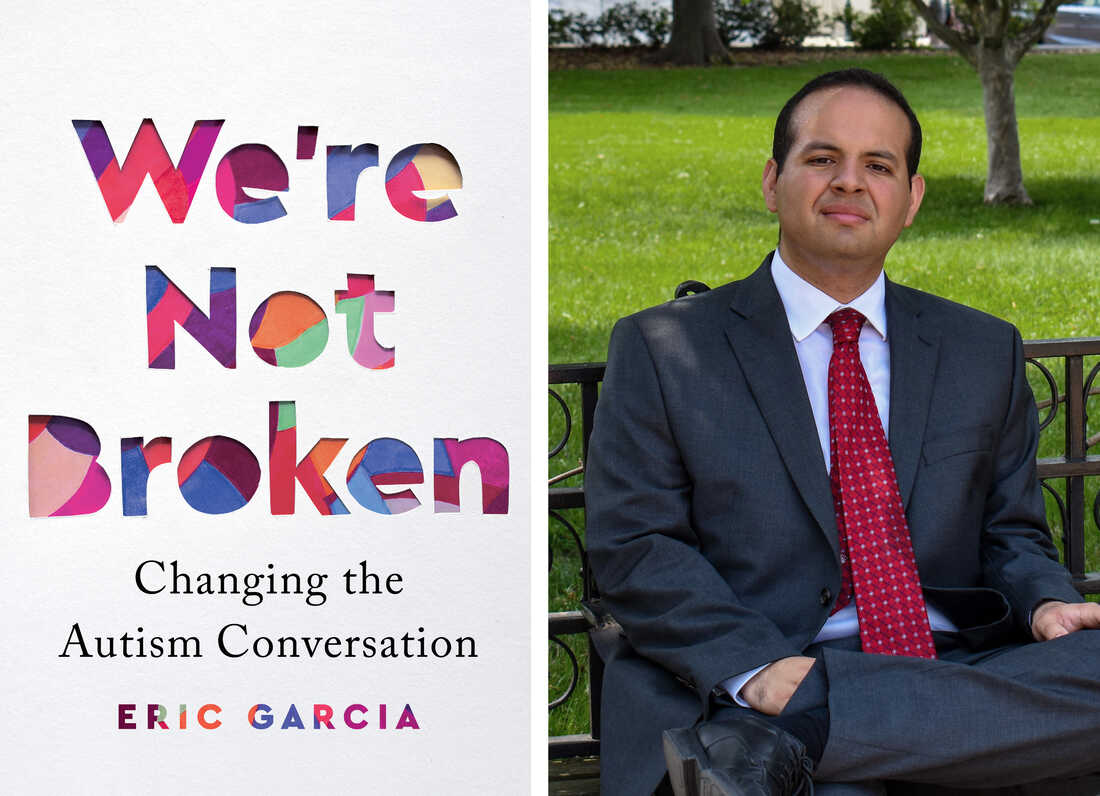We’re Not Broken: Changing the Autism Conversation by Eric Garcia

CHAPTER 1
AUTISM MYTHS
- autism and vaccines
- originally made by Andrew Wakefield who was being paid by attorneys representing parents of children who had filed lawsuits again vaccine companies
- he lost his medical license and his falsified study was retracted
- BUT years before it was redacted, he was given an audience in the US Congress and, in conjunction with rampant misinformation and fear-mongering by government officials known for conspiracies, the conspiracies about autism and vaccines that unfortunately live on to this day took off
- measles outbreak the following year potentially tied to parents being scared to vaccinate their children
- “false notion that children could be protected from autism simply by not getting vaccinated for diseases that could be prevented”
- hard to combat because it is a conspiracy, and so facts and logic don’t work to convince
- very harmful bc it took over the political discussion of autism and shifted conversations far away from actually relevant topics for autistic rights and support
- spread by misinformation from seemingly credible sources (author shared how he once believed a connection between vaccines and autism as a kid because it was said by someone on large platforms like CNN and Oprah) — people spewing false information are given platforms because people are so uneducated about the facts and easily giving in to fear and rampant ableism
- autism and shooters
- based on often falsified rumors that people immediately latch on to because they want to be able to blame mass shootings on autism, villainizing it while taking the blame off of themselves by being able to point fingers
- very harmful narrative obviously
- autism is only found in children
- autism is in adults too! but most studies are done on children and most propaganda and conversations around autism center children because of the way parent advocates have historically taken over the narrative and spoken for autistic voices –> doesn’t even occur to people that autistic people can speak for themselves or be adults with jobs and lives
- this myth causes infantilización of adults with autism (who are not respected and treated as incapable and like children) and lack of support systems for autistic adults because they aren’t acknowledged
- only affects white cishet boys
- research bias
- lots of overlap with autistic and trans/nonbinary/gender-nonconforming communities (see the Context section of this article posted by a trans autistic researcher for Embrace Autism)
- people like the author are portrayed as “overcoming” autism
- “but autism is an integral part of my identity and, as such, it has played a role in my success”
- “When people see me as an inspiration because I “overcame” my disability to graduate college and hold a job, I want to respond that the only things I overcame were the specific obstacles in front of me.”
- autistic people with more support needs are somehow less human or valuable than those who require less support
- autistic people should appear in the media only when they inspire hope or pity
- autistic people are incapable of holding jobs outside tech, having relationships, living independently
- autistic people cannot advocate for themselves
- the “unhelpful and harmful binary that assumes people [who are high functioning ] do not struggle while presuming incompetence in those who are nonverbal”
- the “extreme male brain” theory
- “posits that autistic people’s brains have more “male” traits, such as systemizing, and fewer “female” traits, such as empathizing (autistic people, particularly autistic women, strongly dispute this)”
- the “surge” in autism diagnoses
- not a reflection of an “epidemic of autism,” rather, more people are becoming diagnosed due to more information and support systems!
- furthermore, the first “surge” happened after the many different diagnoses of autism were all combined under the broad label of “Autism Spectrum Disorder” –> “which makes sense: if the definition of autism is broadened, it stands to reason that more people who went undetected in the past would get diagnosed”
- the “tragedy” of autism
- Jim Sinclair (prominent early autistic advocate, cofounder of autism network international, and very cool person)
- “autism is a way of being. It is not possible to separate the person from the autism… when parents say, I wish my child did not have autism, what they are really saying is I wish the autistic child I have did not exist”
- “he argued that parent’s grief is not from autism itself, but rather the loss of the child they’d hoped to have….”
- “Yes, there is a tragedy that comes with autism: not because of what we are, but because of the things that happened to us. Be sad about that, if you want to be sad about something. Better than being sad about it, though, get mad about it— and then do something about it”
- “autism is a way of being. It is not possible to separate the person from the autism… when parents say, I wish my child did not have autism, what they are really saying is I wish the autistic child I have did not exist”
- Jim Sinclair (prominent early autistic advocate, cofounder of autism network international, and very cool person)
“…but when I decided to start writing about autism as an autistic person, I chose to place myself within the larger context. I know plenty of parents clamor for stories like me as inspiration, but the truth is, I’m not special. I want them to see my story as a projector that broadcasts the stories of other autistic people. If I’m going to write about myself, I’m taking as many autistic people as I can along with me.”
There was also a ton of focus on the social model of disability (see Vocab), here are some of my favorite quotes
- “When people see me as an inspiration because i “overcame” my disability to graduate college and hold a job, I want to respond that the only things I overcame were the specific obstacles in front of me. I am a return on others’ investment in policy. In the same way, every autistic person who languishes in classes or winds up in a group home or institution is not a reflection of a poor upbringing but rather a failure in policy.”
- “I have met people who are much more intelligent and capable than I am but who are languishing because they did not have the same opportunities, support structure, or just pure luck that I did. The world around them is a bigger impediment to them than their autism ever was.”
- “Since I began writing and reporting about, I have countless people who weren’t afforded the same chances. Their educators doubted their need for accommodations. their parents mourned their condition and subscribed to toxic tropes. they couldn’t find work bc employers were unaccepting. But none of that reflects who they are; it’s a reflection of a world that penalizes them for not playing by its rules. “
“…the world around them is a bigger impediment to them than their autism ever was…”
VERY important and intriguing statistics!
- 2019 report from the Interagency Autism Coordinating committee, the federal government’s advisory body on autism
- 75% of all research spending goes towards finding the root causes of autism and the best way to “treat” autistic people
- only 6% of US’s budget on “research to improve services and supports for people with [asd]
- “this contrast in spending reflects this country’s backward values; rather than learning how to best assist autistic people as they navigate the world, researchers focus on mitigating symptoms and finding a cure.”
- it was one thing to know that there is a research and priorities gap, but quite another to see these staggering statistics, especially considering that the US leads the world in funding for research
- also very importantly highlights how the government and public’s relationship with autism has been towards making it easier for neurotypical society and less on helping the autistic individuals who are the ones who need support in the first place
- Autism in the General Population (at time of books release)
- 1/54 children in the United States is diagnosed with ASD (acc CDC)
- estimated 2.2% adult population has ASD (CDC)
- difficult to determine adults because testing methods are designed for kids
Chapter 1 included lots of good discussion of the history of organizations like Autism Speaks and their relation to public conception of autism and politics at the time, as well as very important information about the horrific history of autism “treatment,” the parents love narrative (ie. justification of torturing, shocking, or even killing autistic children as it being FOR them because the parent “loves them” and “doesn’t want them to suffer” or it was “too much”), the wild misrepresentation of autism in media and by “advocacy organizations” and parents, and the justification of the discrimination and hope for the eradication of autistic individuals through a cure.
I would definitely recommend a read to learn about this (also trigger warning as some of the treatment of autistic individuals is very depressing and quite horrific).

